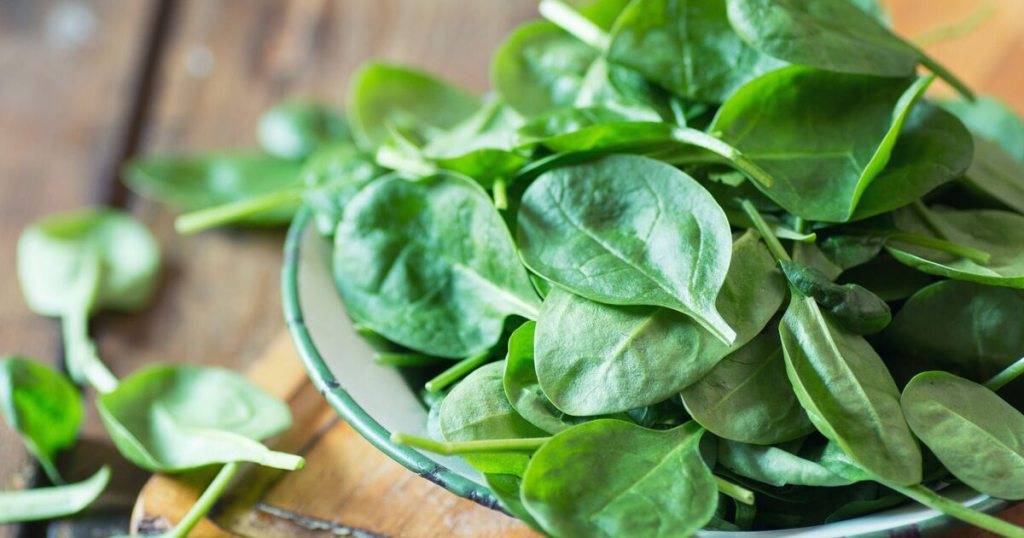We’ve all been there—heating up leftover Thanksgiving dinner or reheating last night’s dinner in the microwave. It’s convenient, it’s quick, and it saves time. But did you know that some of your favorite reheated foods can pose serious health risks? As a dietitian, I’m here to shed light on the foods you should never reheat, especially in the microwave. From nitrates in spinach to bacterial contamination in rice, reheating these foods can have unintended and harmful consequences for your health.
Why Reheating Certain Foods Can Be Dangerous
Reheating food may seem harmless, but when done improperly, it can lead to the formation of harmful compounds or the growth of bacteria that can make you sick. This is especially true for foods that contain high levels of nitrates, proteins, or starchy carbohydrates. The microwave, with its rapid heat and uneven heating, can amplify these dangers. So, what foods should you avoid reheating, and why?
1. Spinach: A Hidden Danger in Your Leftovers

We all know how nutritious spinach is, packed with iron, vitamins, and fiber. However, it also contains high levels of nitrates, which can pose a health risk when reheated. Dietitian Harini Bala warns that cooking spinach increases its nitrate levels, and when spinach is reheated, these nitrates convert into nitrosamines, a compound that has been linked to cancer.
Spinach is particularly vulnerable when reheated in the microwave, where the high heat can accelerate this conversion. According to Bala, the compounds formed during reheating are toxic and should be avoided. The best advice? “Don’t reheat your spinach,” Bala urges. Instead, cook it fresh each time, or eat it immediately after preparation.
2. Tea: More Harmful Than You Think When Reheated
We’ve all enjoyed a hot cup of tea, but did you know that reheating tea can actually reduce its health benefits? Tea contains antioxidants known for their ability to fight free radicals and reduce inflammation. However, when tea is reheated, these antioxidants break down, diminishing the potential health benefits.
In addition to the loss of antioxidants, reheating tea also increases the level of tannins. Tannins are compounds that give tea its bitter taste, and when reheated, their concentration can rise significantly, making the tea taste unpleasant.
Even more concerning, Bala points out, is the fact that reheating tea can activate any dormant bacteria that may be present, which could lead to foodborne illness. It’s safer to brew fresh tea rather than risk drinking something that could be harmful to your health.
3. Rice: The Hidden Risk of Bacterial Growth

Reheating rice is another seemingly innocent habit that can pose serious health risks. Rice, when not handled correctly, can become a breeding ground for bacteria, particularly Bacillus cereus. This bacterium is often found in starchy foods, especially rice, and it can cause food poisoning if the rice is stored improperly.
Bala explains that if rice is not cooled and stored in an airtight container within two hours of cooking, harmful bacteria can grow. If you cook your rice in the morning and leave it out too long before refrigerating it, the bacteria will multiply rapidly. When reheated, the bacteria can produce toxins that cause symptoms like nausea, vomiting, diarrhea, and stomach cramps—a condition often referred to as “fried rice syndrome.”
According to the FDA, Bacillus cereus causes around 63,400 food poisoning cases in the United States each year. While refrigeration helps prevent bacterial growth, it’s crucial to follow proper storage guidelines. If you plan to store rice, make sure to refrigerate it immediately after it cools down to avoid the risk of foodborne illness.
How to Safely Reheat Leftovers
Although reheating certain foods can be hazardous to your health, there are safe ways to reheat food without compromising your well-being. Here are a few tips to help ensure your leftovers are safe to eat:
Store Foods Properly: Always refrigerate leftovers within two hours of cooking. This applies to all foods, including rice, pasta, meats, and vegetables. Use airtight containers to prevent bacteria growth and maintain food quality.

Reheat Evenly: When using the microwave to reheat food, be sure to stir it often to ensure even heating. Uneven heating can lead to cold spots where bacteria can survive.
Avoid Reheating Multiple Times: Reheating food multiple times can increase the risk of bacteria growth and reduce food quality. Only reheat what you plan to eat, and discard any leftovers that you don’t consume.
Conclusion: Know What to Avoid Reheating for Better Health
Reheating leftovers can be a convenient way to enjoy a meal, but it’s essential to be aware of the risks associated with certain foods. Spinach, tea, and rice are three common foods that should never be reheated, as they can cause harmful compounds to form or lead to bacterial contamination. By following proper food storage and reheating guidelines, you can reduce the risk of foodborne illnesses and enjoy your leftovers safely.
So, next time you’re tempted to reheat that bowl of spinach or a cup of tea, remember the health risks involved. It might be a small inconvenience to cook fresh food, but it’s worth the effort to keep your health in check. Stay safe and always make sure your leftovers are stored and reheated correctly to avoid the dangers that lurk in these common foods.


